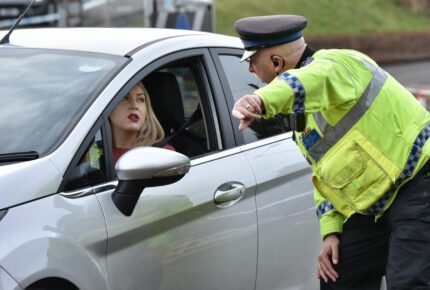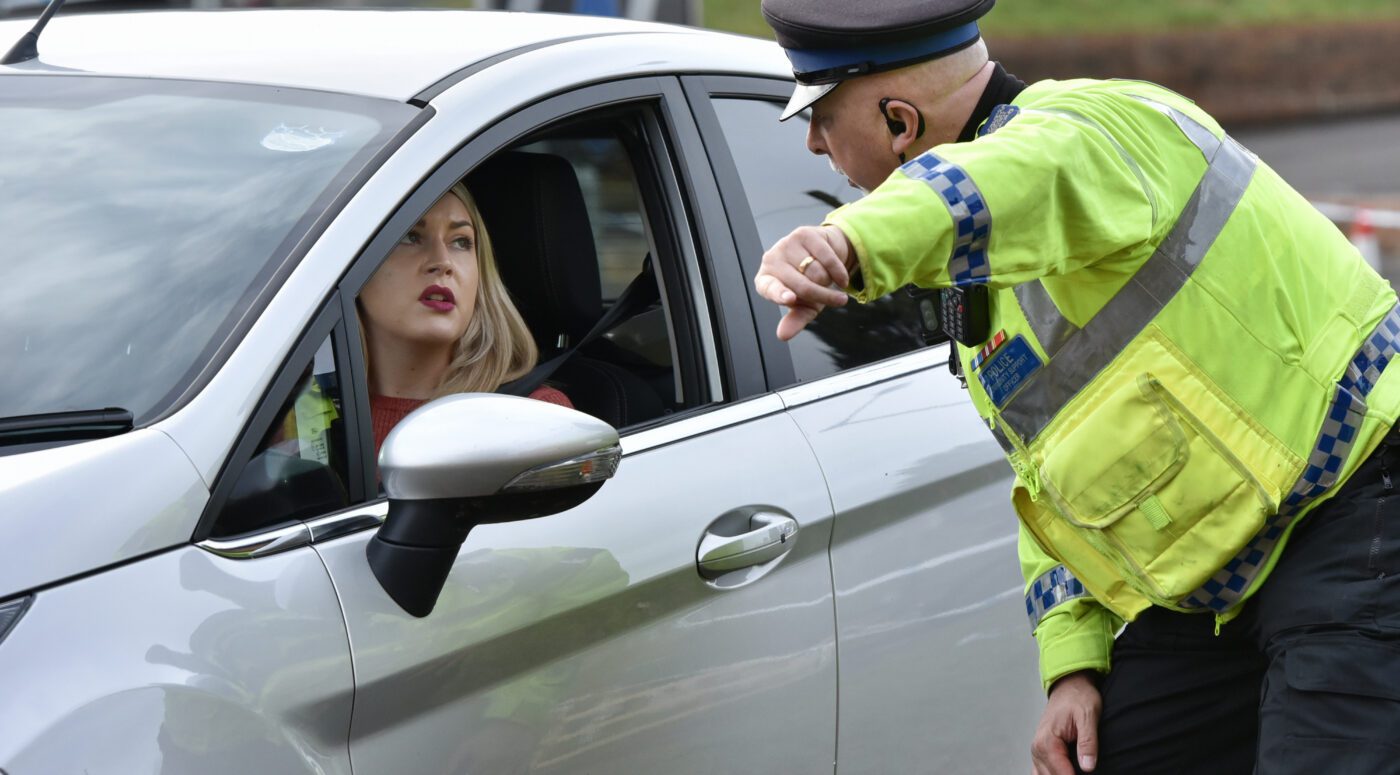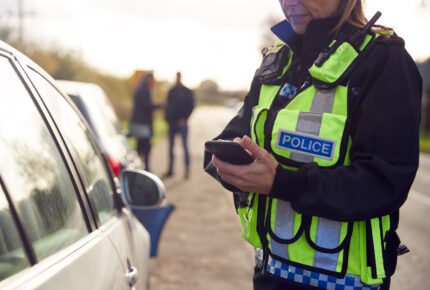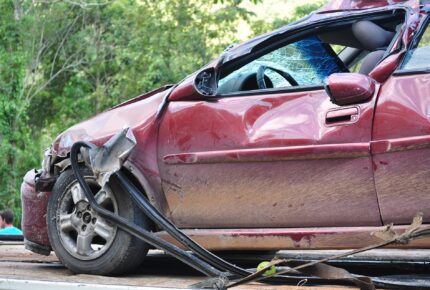

Under the UK points based system for driving infringements, if you exceed a certain number of points within three years, this is considered to be a serious motoring offence and you could face a ban pursuant to Section 35 of the Road Traffic Offenders Act 1988. The minimum ban period is 6 months if there are no previous disqualifications to take into account, or a year if one previous disqualification is to be taken into account, and two years if more than one previous disqualification is to be taken into account. A previous disqualification will be taken into account where it was for 56 days (2 months) or longer, and it was imposed within the three years directly before the date on which the current offence was committed. In some circumstances, you can avoid the ban by successfully making an ‘exceptional hardship’ argument. Read on to understand what the legal elements of exceptional hardship are, how you can make this argument, and whether it is possible to make an argument more than once.
What is exceptional hardship?
Exceptional hardship refers to extreme inconvenience or suffering beyond what the law considers to be appropriate to inflict through a totting up ban. It refers to something more than just everyday inconvenience.
What is and is not exceptional hardship is not clearly set out in law. However, there are a number of factors that the court will take into account when considering whether the exceptional hardship test is met:
- Do you need your car for work?
- Would not being able to drive cause you to lose your job?
- If you lost your job, how would this impact other people, e.g. would other people that you work with also lose their job?
- Would disqualification significantly affect your finances to the extent that you are unable to meet all of your outgoings?
- Could losing your licence cause you to lose your family home, e.g. by being unable to keep up with mortgage repayments?
- Do you have dependents who rely upon you driving them around, g. do you need to drop your children off at school or drive an elderly relative to hospital appointments?
- Are you an active community member or charity worker, and would not driving would prevent you from providing essential community services?
- Would not driving damage your health?
If you make an argument based on the hardship of another person, such as a family member, the court will ask you whether anyone else could step in and take over your duties. Similarly, if you allege that you need your car for work, the court will explore whether alternatives such as public transport are available.
How do you argue exceptional hardship to avoid a driving ban?
Your criminal defence solicitor will advise you as to whether you have a realistic chance of successfully arguing exceptional hardship. In a totting up ban case, the court will first determine whether the offence should attract a discretionary period of disqualification. The court is statutorily obliged to disqualify repeat offenders who would, were penalty points imposed, be liable to a mandatory totting disqualification. The court is obliged to prioritise a totting disqualification over a discretionary disqualification.
Where the offender has 12 or more penalty points, the court is required to disqualify the offender unless it is satisfied that exceptional circumstances apply. The court is not allowed to take into account any hardship other than exceptional hardship, or any circumstances which are alleged to make the offence (or any of the other offences for the other penalty points) not serious. The court is also not allowed to take into account any circumstances which have already been used in the last three years to avoid a totting up conviction.
It will be down to you to prove on the balance of probabilities that exceptional circumstances exist. Your solicitor can help you prepare an argument to the court advancing exceptional hardship. You will need to clearly set out how the driving ban would affect you and those who are dependent on you. You will need to provide evidence to support any assertions that you make. This could include: your employment contract; a letter from your employer; hospital appointment letters relating to your relatives; witness statements from family members; or information regarding the whereabouts of your children’s school and evidence that they are enrolled there. You will need to be willing to testify in court as to the circumstances which would cause exceptional hardship if the driving ban is put in place.
How many times can you plead exceptional hardship? Can you plead exceptional hardship twice?
You can only plead exceptional hardship once in a 3-year period. If the court finds that you will suffer exceptional hardship if your licence is suspended, you will not lose your licence but the points on your licence will remain. This means that if any time in the next 3 years you are caught committing an offence that will place you over the maximum number of points (12), you will not be able to argue exceptional hardship again.
For example, say you already have 9 points on your licence. You are caught driving at 62mph in a 40mph zone. This could attract 4-6 points or a disqualification for between 7 and 28 days. If you successfully plead exceptional hardship, the points on your licence will remain at 9. Any further infringement which attracts 4 or more points will result in you being disqualified from driving for a set period of time. If you receive a totting up driving ban, this will erase all penalty points currently on your licence.
Do I need a solicitor for exceptional hardship?
You can put your own arguments forward for exceptional hardship, but you have a much better chance of success if you instruct an experienced criminal defence solicitor. Sometimes there can be an art to providing just enough information to support your application but not so much that you give the court reason to ask too many questions. Your solicitor can help you achieve this balance, as well as ensuring that your assertions are backed up with objective evidence.
Can you avoid a driving ban?
You may be able to avoid a driving ban for a totting up offence if you successfully argue exceptional hardship. However, you cannot argue exceptional hardship for a drunk driving case.
Where you are found to have driven having consumed alcohol above the 35mg breath limit, you may receive up to 6 months in prison and a driving ban. If you do not receive a custodial sentence, alternatively you may receive a monetary fine, or community service.
The only route to avoiding a ban for a drink driving case would be to successfully argue ‘special reasons’ as set out by Section 34(1) of the Road Traffic Offenders Act 1988. Special reasons must relate to the commission of the drink driving offence in question, not to the offender themselves.
Special reasons can be almost anything that mitigates the offender’s culpability, but typically is something like:
- A drink being spiked unknowingly
- Needing to drive over the limit to save someone’s life, such as taking someone to the hospital if an ambulance is not available
When special reasons are put forward in drink driving cases, the court must consider the following factors:
- The reason for driving the motor vehicle
- The distance the motor vehicle was driven
- The manner in which the motor vehicle was driven
- The condition of the motor vehicle which was driven
- Whether the driver intended to drive the motor vehicle further
- The road and traffic conditions at the time the offence took place
Most importantly, the court will consider the risk of danger to other road users at the time that the offence took place. For example, the court may accept special reasons where a very short distance has been driven, where the car was driven due to an emergency, or where the driver was under the influence of alcohol due to their drink being laced or spiked without their knowledge. The defendant is responsible for establishing the burden of proof necessary in order to establish special reasons. A successfully argued special reasons defence can lead to the period of disqualification being reduced or eliminated altogether.
If you are not satisfied with the Magistrates’ Court’s decision in respect of whether special reasons apply, you can appeal to the Crown Court. As with showing exceptional hardship, showing special reasons is a complex and technical area of law and you are more likely to succeed if you instruct a criminal defence solicitor.
Where to get further help?
If you believe that you may have grounds for exceptional hardship or special reasons, instructing a criminal defence solicitor will give you the best possible chance of having the court accept your argument. At Stuart Miller Solicitors, we have many years of experience representing individuals in relation to driving infringements. We understand the pressures that a driving disqualification can add in life that is already busy and stressful enough. Contact us for a no obligation consultation today.
OUR COMMITMENTS TO YOU:
-
Responsive
A legal expert will consult you within 24 hours of making an enquiry.
-
Empathetic
We will always treat you with trust, understanding and respect.
-
Specialised
Your case will be handled by an expert who specialises in your type of offence.
-
Proactive
We will take early action to end proceedings as soon as it is practically and legally possible to do so.
-
Engaged
You will be kept updated on your case at all times. We will provide a named contact available to answer your questions.
-
Caring
We understand this is a difficult and stressful time for you and your family. Our team will support you every step of the way.
-
Tenacious
We will never give up on your case. We fight tirelessly to get you the best possible outcome.

